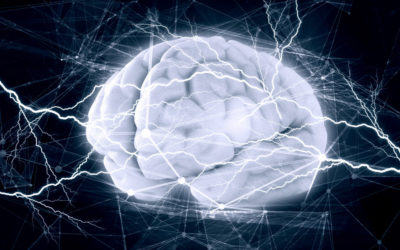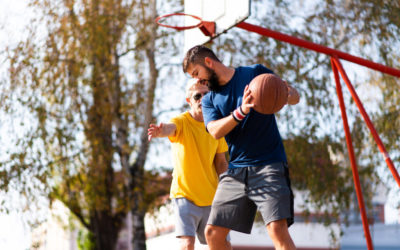Quick Hits
Daily brief research updates from the cognitive sciences

If you have the right job that is.
First let’s understand what the researchers were investigating. There is something strange going on with Alzheimer’s – we know that in Alzheimer’s disease there is a build-up of clumps of protein in the brain known as amyloid plaques. These were discovered many, many years ago and seemed to be obviously contributing and causing the cognitive decline associated with Alzheimer’s.
However, over the years something strange was noticed. Namely that some people seem to have high build-up of these plaques but remain cognitive on top of it. Their memory and thinking abilities remain good into a ripe old age with none of the decline noticed in Alzheimer’s – or even through general ageing.
So, what is happening – well, it appears there is a “cognitive reserve” that some people can draw on that protects from cognitive decline – but what contributes to this?
This is precisely what these researchers around Pamela Almeida-Meza for the American Academy of Neurology wanted to find out.
For this they used data from 1’184 people born in 1946 in the UK – they had taken a cognitive test at age 8 and had repeated them at aged 69. They also had done a reading test at age 53 and other factors were measured such as profession until 53 and social activites such as membership and active participation in clubs, further learning, and organisations.
Therefore, they could measure not just absolute cognitive score at different ages but the decrease in this over a lifetime and match this to lifestyle factors. Obviously, people who scored high as children are also likely to score high as adults. This therefore aims to find the contributing factors that make a difference.
I am sure you want to know what these factors were.
So first off yes, childhood cognitive scores showed higher cognitive ratings at 69 – so cognitive ability does seem to be preserved – to a degree. They also noticed that educational achievement at 26 correlated strongly to highly preserved cognitive abilities. Occupation up to 53 was also predictive as was reading ability at 53. A more surprising correlation was that of social activities such as being in clubs or being enrolled in learning programmes – those with most activities showed the highest scores.
So, this shows that childhood cognitive ability, job, and social activities all contribute to creating a cognitive reserve and reducing cognitive decline with or without plaques. So, it is not just your job as I suggested in the headline – though other research has shown that having a cognitively demanding job helps preserve cognitive ability.
But you may say that these are all interrelated. If you have high cognitive ability as a child, you will likely get a better education, and then get a better job, and this will likely preserve cognitive ability (not to mention avoiding other stressors in life).
That is true but when the researchers created a “cognitive reserve rating” which included educational level, occupation, reading ability at 53, and social activities at 43, they saw that this reduced cognitive decline irrespective of childhood cognitive ability.
So, this suggests that these factors are important in keeping your cognitive ability. But it also means that you may be able to compensate with other factors – you may not have the most cognitively challenging job but you can certainly be socially active, in clubs and associations and this may give you the cognitive stimulation, plus social contact, that your brain needs.
So, keep learning, keep active, be socially engaged, and have a cognitively stimulating job – that will help preserve your cognitive ability irrespective of plaques. That’s good to know!

Andy Habermacher
Andy is author of leading brains Review, Neuroleadership, and multiple other books. He has been intensively involved in writing and research into neuroleadership and is considered one of Europe’s leading experts. He is also a well-known public speaker, speaking on the brain and human behaviour.
Andy is also a masters athlete (middle distance running) and competes regularly at international competitions (and holds a few national records in his age category).
Reference
Pamela Almeida-Meza, Marcus Richards, Dorina Cadar.
Moderating Role of Cognitive Reserve Markers Between Childhood Cognition and Cognitive Ageing: Evidence From the 1946 UK Birth Cohort.
Neurology, 2022
DOI: 10.1212/WNL.0000000000200928
More Quick Hits
Yes, Fake Smiling Does Improve Your Mood
Can just smiling, even if fake, improve your mood? This has been proven, debunked, re-proven and now re-re-proven…
How Your Brain Decides to Help Others in Danger
In times of crises and danger we may hide and flee as our natural instincts would guide us, or do something else: put ourselves at danger and help others.
Two Types of Willpower
There are two types of will power – and one is much more effective…
Our Brains Seem to Use Quantum Computations
It has been proposed that our brain uses quantum processes but this is hard to prove – until now that is…
Insults Trigger the Equivalent of a Slap to the Face in the Brain
What do insults do to our brain wave patterns, do they degrade over time and how do they compare to compliments?
Even a Short Bout of Exercise Can Boost Brain Growth
Exercise is good for you – we all know that. But can just a single bout of exercise do you and your brain any good?






